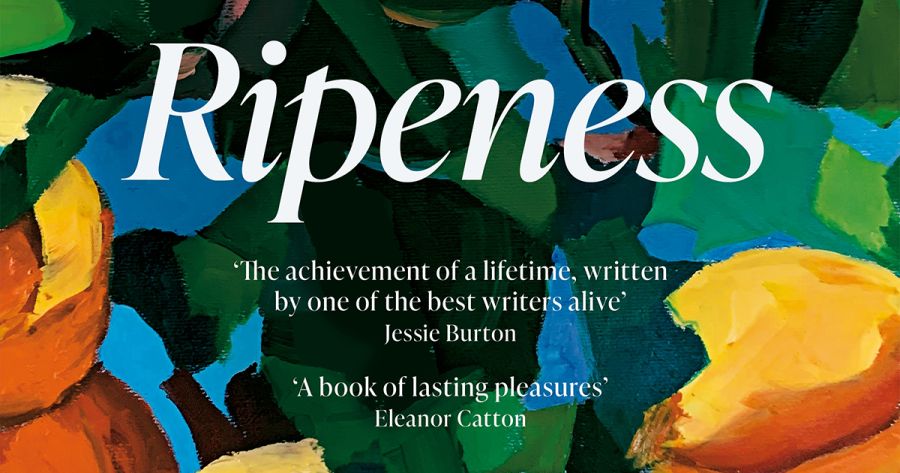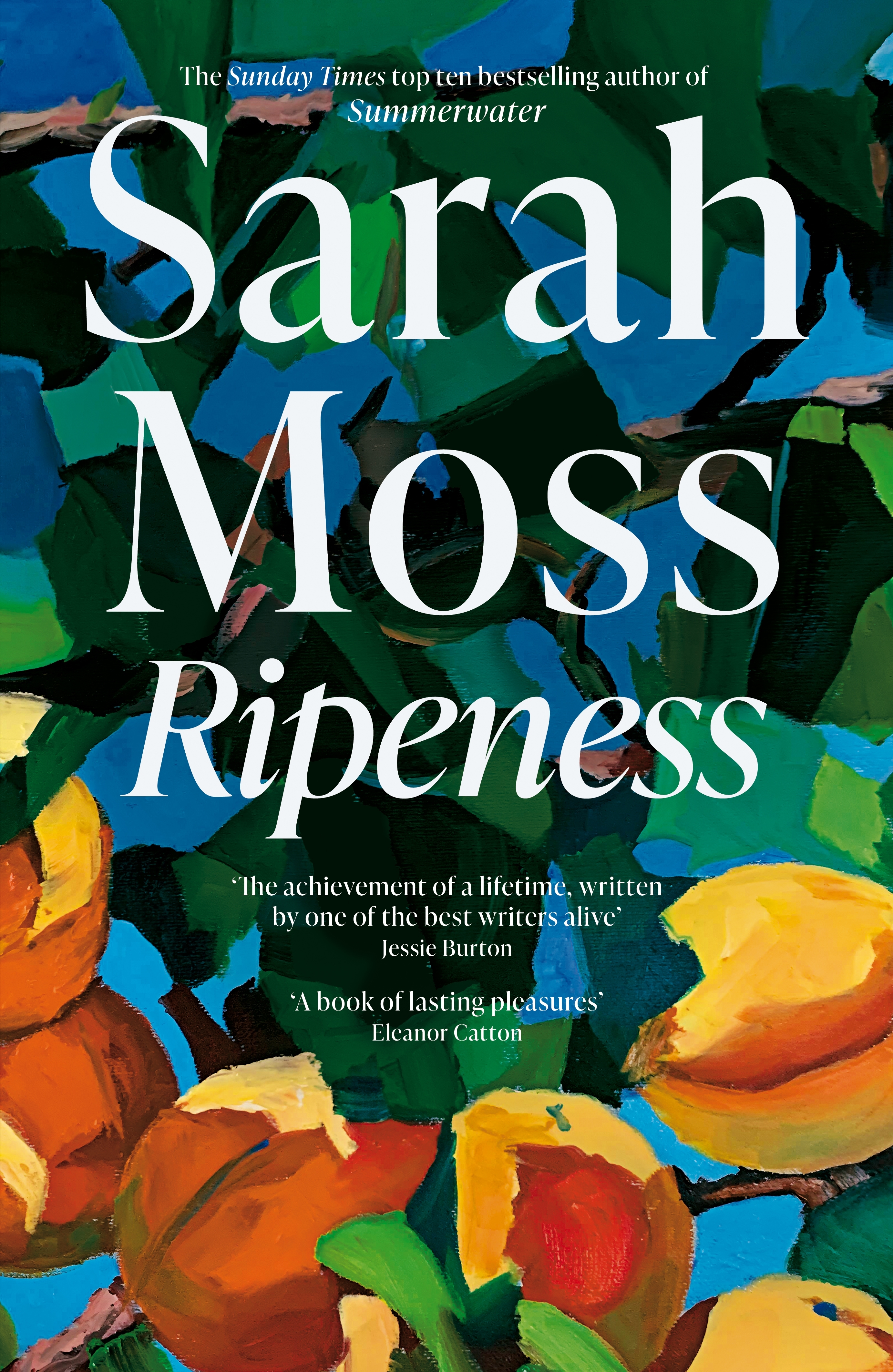
- Free Article: No
- Contents Category: Fiction
- Review Article: Yes
- Article Title: Too settled
- Article Subtitle: A novel about social maturation
- Online Only: No
- Custom Highlight Text:
Sarah Moss’s tenth novel, Ripeness, charts the burden of bearing witness to tragedies, both personal and historical. At the heart of the story are two sisters from rural Ireland: Lydia, a ballerina, and Edith, a school-leaver due to commence a degree at Oxford. When Lydia falls pregnant, the girls’s mother charges Edith with the responsibility of assisting in the birth and overseeing the transfer of the baby into the care of his adoptive mother.
- Book 1 Title: Ripeness
- Book 1 Biblio: Picador, $34.99 pb, 304 pp
- Book 1 Cover Small (400 x 600):

- Book 1 Cover (800 x 1200):

- Book 1 Readings Link: https://www.readings.com.au/product/9781529035506/ripeness--sarah-moss--2025--9781529035506#rac:jokjjzr6ly9m
The narrative unfolds across two intersecting timelines. The first, set in 2023, is told in the third person but focalises Edith’s thoughts and feelings as she navigates daily life in the shadow of other people’s difficulties and worries, including the pressures of unaffordable housing on her friends’ children, the anxiety of her friend Méabh, who has just been contacted by a brother she never knew she had, and community division regarding the resettlement of refugees in the area.
The second, set in the late 1960s, is narrated from Edith’s perspective as she travels to Italy, where Lydia is confined and the birth draws nearer. When these two threads intersect – after Edith witnesses Lydia give birth – these chapters take on a deeper emotional resonance as Lydia addresses the baby she knew all too briefly.
Crisis is Moss’s specialty, and her coverage of this terrain has steadily escalated over the course of her career. Her recent novels, Ghost Wall (2018) and Summerwater (2020), are imbued with an urgent tone and portray the devastating effects of crumbling social and political structures upon individuals in need of support and care. It is no coincidence that these novels were published following the Brexit vote; the small-mindedness of those who seek to protect an imaginary white British community from outsiders is frequently implicated in the tragedies that befall Moss’s characters. In Ghost Wall, a controlling father corrals his wife and daughter to attend a summer archaeological camp where they build a ‘ghost wall’, an ancient defence against invading Romans, just as the Berlin Wall is torn down. In Summerwater, also set during a summer vacation but in a period closer to our own time, a child parrots the racism of adults by telling another child, whose ethnicity remains uncertain to the holidaymakers, ‘You’re supposed to have left, you know, people like you, did you not get the message?’
While the events of Ripeness are likewise situated at the confluence of the historical, the political, and the familial, Moss raises the stakes by framing personal responsibility against the vast backdrop of collective catastrophe. Lydia and Edith, themselves of Jewish descent, learn from their mother – whose family members perished in the Holocaust – the dangers of becoming too settled: ‘It was the settled, secure ones who ended up on the cattle trucks, the ones who thought it couldn’t happen to us. It can always happen here, to you.’
Being ‘too settled’ is the dilemma at the centre of the novel. Edith is, in many ways, comfortable with her lot: unperturbed by her status as a divorced woman, accepting of her failings as a mother to her son, Pat, and a detached observer of both the climate crisis and the struggles of her friends’ children to secure affordable housing. She experiences a minor crisis when refugees are resettled in her community; while some of the locals fear this will further deplete already scarce resources, she sees her own family history reflected in their plight and understands that ‘no one is free until everyone is free’.
Edith’s major reckoning is prompted by witnessing Méabh’s willingness to welcome a new family member into her life. Although Edith will never ‘send her genetic code … to be broken and sold by some American corporation, to have all that they are calculated in zeros and ones’, she imagines that she ‘could leave an account, an explanation – expiation? – for Lydia’s son to find if he comes looking when she’s gone’.
This act of accounting, and the fact that there is more than one lost child in the novel, invokes another historical shadow germane to Edith’s reckoning: Ireland’s punitive treatment of unmarried mothers. It is now well documented that between 1922 and 1998, mother and baby homes housed 56,000 unmarried mothers and 57,000 children, while the more infamous Magdalene laundries confined at least 10,000 women and girls. While neither of these institutions directly impact Méabh or Edith, they are a ghostly presence in their conversations about Ireland’s social progress and in Méabh’s uncertainty over how her mother was able to conceal the fact that she had had a child out of wedlock.
The title, Ripeness, captures the novel’s concern with maturation through facing the past. While the crises depicted in the novel threaten to unsettle its characters, it is also clear that facing up to them results in a kind of emotional ‘resettling’; experiences that were once taboo can now be accommodated in conversation, stories, and the written record. Early in the novel, a sense of ripeness is evoked through two key images: the young Edith eating pears straight from a tree, which recalls Eve plucking the forbidden fruit, and Lydia’s pregnant, swollen belly. As the novel unfolds, the rising momentum of Edith’s ‘confession’ conveys the ‘ripeness’ of her historical moment. Ultimately, her ability to hold herself to account reflects the maturation of a society that is finally able to start telling these stories and face the fall out head on.


Comments powered by CComment